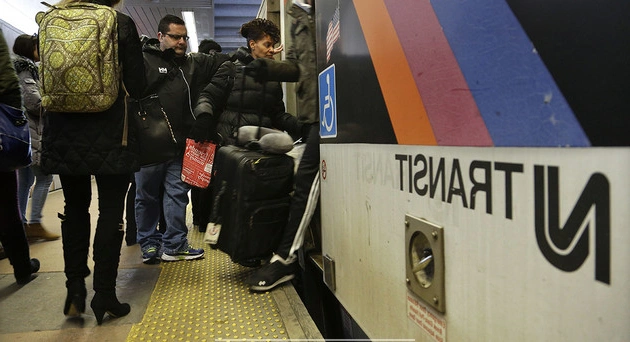
The recent NJ Transit strike, which halted trains for a few days, has officially ended, just in time for the upcoming workweek. The Brotherhood of Locomotive Engineers and Trainmen (BLET) declared on Sunday evening that following intense negotiations post-strike, an agreement has been reached. As a result, normal train operations are set to resume on Monday according to their regular schedules.
Negotiation Details and Terms
BLET, representing NJ Transit employees, had been advocating for salary parity with engineers at neighboring railroads, such as the Long Island Rail Road. Meanwhile, NJ Transit, grappling with financial instability, aimed to maintain fiscal prudence without compromising service quality.
The NJ Transit union’s general chairman highlighted that they proposed feasible strategies to enhance engineers’ wages, which would aid in staff retention and recruitment. These proposals ensure budget sustainability without necessitating fare hikes.
Anticipated Briefing and Agreement Ratification
Governor Phil Murphy and NJ Transit’s CEO are expected to address the media soon to provide further insights. While the specifics of the agreement are pending ratification by union members, the swift resolution contrasts the previous deadlock. In April, BLET members rejected a prior deal, triggering the recent strike.
Mediation and Resolution
The National Mediation Board played a pivotal role in facilitating dialogue between the involved parties. Even before formal mediation, the national BLET leader initiated talks with NJ Transit’s CEO to expedite negotiations.
The strike’s timing, commencing on a Friday with lower ridership, aligns favorably with the impending workweek rush. Notably, the prompt resolution contrasts historical rail strikes, including a prolonged one during NJ Transit’s inception in 1983.
Political Perspectives and Congressional Involvement
The strike’s political implications drew attention to Washington’s response, or lack thereof, to the transit disruption affecting thousands of commuters. While past instances saw congressional interventions in rail disputes, this strike remained largely unaddressed at the federal level.
BLET’s representative commended Congress for refraining from interference, emphasizing the importance of swift resolutions in labor disputes. In contrast to previous interventions, the absence of legislative action signaled a reliance on direct negotiations.
Local politicians, though urging dialogue resumption, maintained a passive stance during the crisis. Efforts to mediate, like Rep. Josh Gottheimer’s public presence, underscored the urgency for resolution.
Conclusion
The NJ Transit strike’s conclusion signifies a collaborative approach in resolving labor conflicts, setting a precedent for future disputes. The timely resolution underscores the significance of proactive dialogue and mutual understanding in maintaining essential services.











